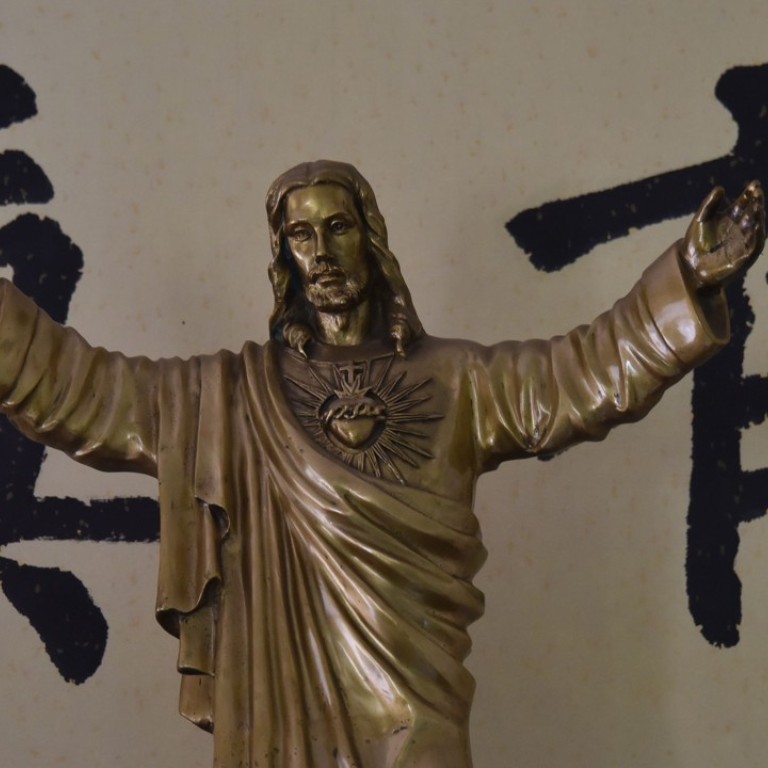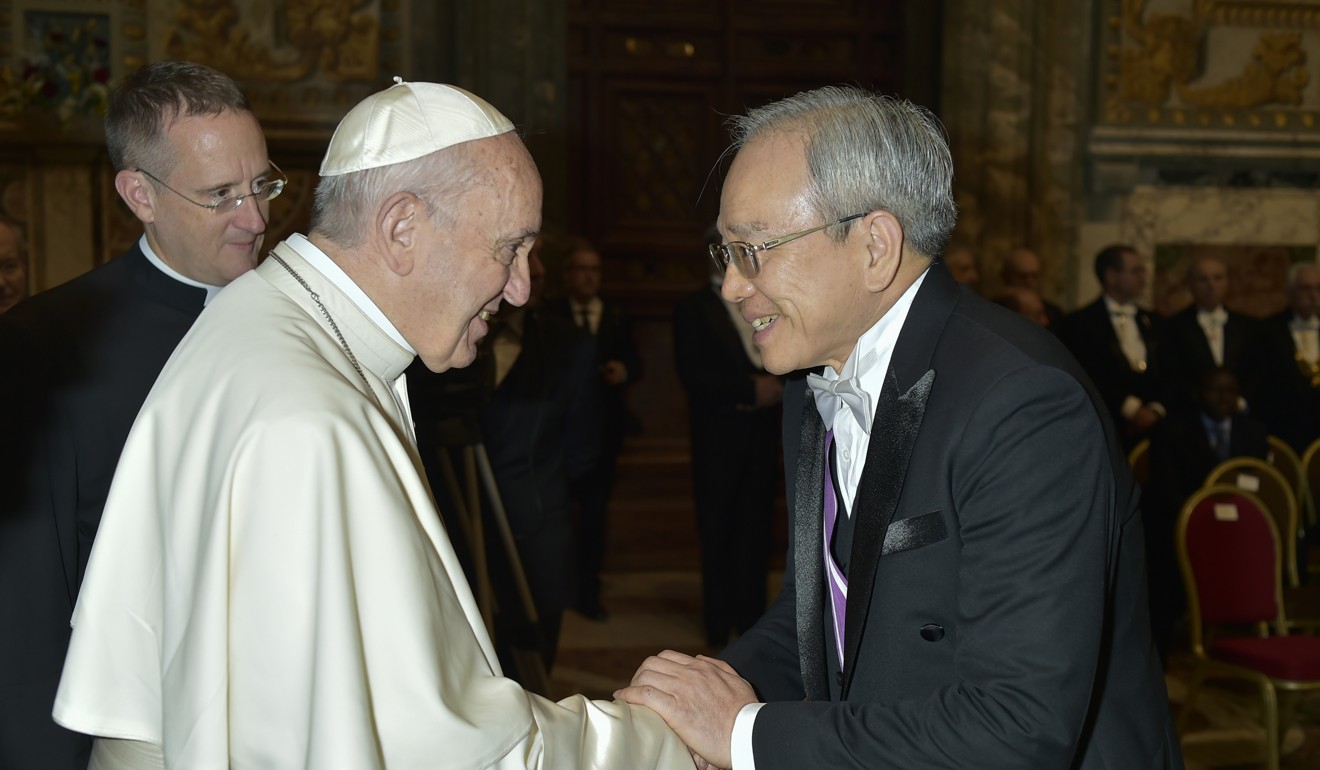
Senior Vatican officials tell Taiwan 'not to over-interpret' deal with mainland on bishop appointments
Church officials say any agreement with the mainland on bishop appointments won’t have ‘connotations’ for the self-ruled island
Taiwan has received assurances from the Holy See that a potential deal with mainland China over the appointment of bishops would not have “political or diplomatic connotations” for the self-ruled island, Taiwan’s foreign ministry said on Tuesday.
The Holy See, the central government of the Catholic Church, is among only 17 states to have formal diplomatic relations with Taiwan, which Beijing sees as a breakaway province.
An agreement – if it materialises – would end a long-standing dispute between the Vatican and the world’s most populous country, but the prospect has raised fears that it could cost Taiwan its only diplomatic ally in Europe.
Taiwan’s foreign ministry said on Thursday that information from “various sources” indicated an agreement was most likely to be signed in September or October.
On Friday, The Wall Street Journal reported that two people familiar with the negotiations had said a deal could be signed as early as this month.
Pope says China talks on appointing bishops ‘at a good point’
Responding to media questions about the possible deal, Taiwan ministry spokesman Andrew Lee said on Tuesday that diplomats had been in touch with high-level officials in the Vatican and were abreast of the negotiations’ progress.
Lee said senior officials from the Vatican Secretariat of State had said an agreement on bishop appointments was only about handling Catholic affairs on the mainland with “no political or diplomatic connotations”.
Today’s comments echo an interview the island’s ambassador to the Holy See, Matthew Lee, gave to Taiwan’s Central News Agency.
Matthew Lee said senior Vatican officials had made the point clearly on several occasions, and asked all sides “not to over-interpret” the situation.

The self-ruled island has lost five allies over the past two years, as Beijing stepped up pressure to squeeze its international space after the 2016 election of Taiwanese President Tsai Ing-wen of the independence-leaning Democratic Progressive Party.
Beijing and the Holy See have not had diplomatic ties since 1951, when the newly established communist government expelled the Pope’s representative from the mainland.
Since then, Catholics in mainland China – estimated to number around 12 million – have been divided between the government-sanctioned Chinese Patriotic Catholic Association and an underground church that swears allegiance to the Pope.
Previous attempts for rapprochement have been stalled because of disputes over who has the power to appoint bishops in the country. But negotiations sped up when Pope Francis was selected to lead the church in 2013, and reports have increased that the two sides may be closing in on a deal.
China detains ‘underground’ Catholic bishop: sources
In February, Reuters reported that a framework accord on the appointment of bishops was ready and could be signed in a few months, citing a senior Vatican source.
The Catholic News Agency also reported at the time that the agreement could occur as early as the spring.
Amid the discussions China has also continued to tighten its grip on religion in the country.
Earlier this month, a draft regulation proposed a ban on all foreigners from using the internet to promote and preach religion in China, prohibiting live-streaming and online broadcasts, and requiring licences from provincial religious affairs departments for sanctioned church groups.
The draft came one day after authorities in Beijing shut down the Zion Church, known as the biggest Protestant house church in the capital.
New rules put in place in February also increased penalties for unofficial congregations, as well as unregistered religious activities among practitioners of Islam and Buddhism.

